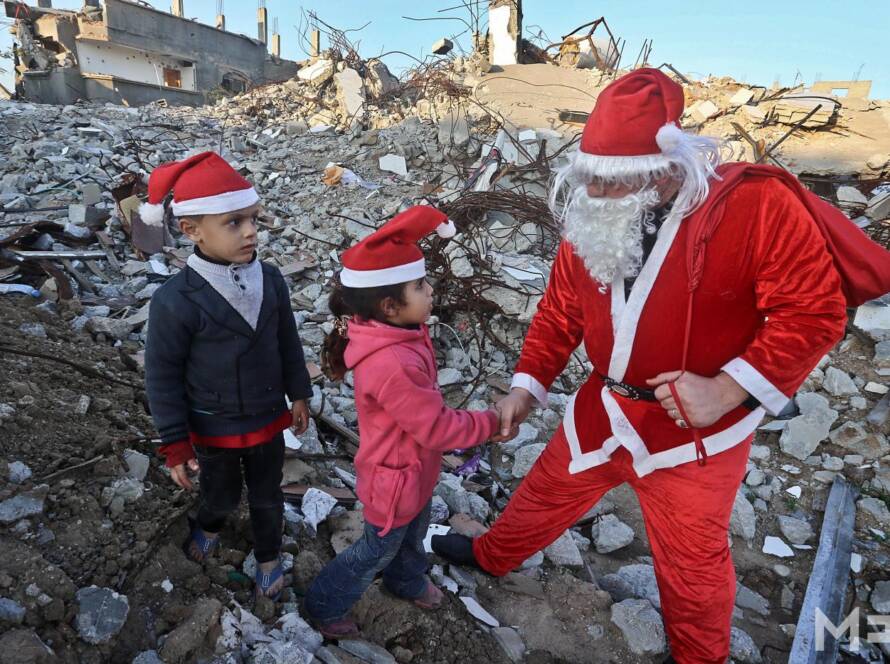By Deshani Samaragunarathna
ألا هو لا دان (Ala ho la dan)
Look who we are, we are the dreamers – We make it happen ’cause we believe it
Look who we are, we are the dreamers – We make it happen ’cause we can see it
Here’s to the ones that keep the passion – Respect, oh, yeah
Here’s to the ones that can imagine – Respect, oh, yeah
“Ala ho la dan” is a cheerful expression which sailors used to sing before starting their journey on the seas of the Arabian Gulf. The lyrics above, which foreground this expression, are from the song “Dreamers”, included in the official FIFA World Cup Anthem for 2022.
The inclusion of these lyrics at such a high-profile event is a tribute to the Arab world’s new approach to public diplomacy. The 2022 FIFA World Cup was more than an exciting event for Qatar and the Arab world. It was a significant milestone in terms of many things, including the economic, environmental, knowledge, and infrastructure development for the entire region.
Sheikha Al Mayassa Hamad bin Khalifa Al Thani, the sister of Qatar’s ruling Emir and Chairperson of Qatar Museums, reflected in her takeaway message at the Qatar Economic Forum on “The Role of Sport in the Game of Life.” She stated that the creative and cultural industries were important drivers of economic growth. M7, Qatar’s epicentre for design, fashion, and technology entrepreneurship, is one notable example of this.
Such examples serve to reinforce the importance of culture is an effective tool for international cooperation, mediation, economic diversification, education, innovation, and human well-being. For centuries, creative economies have woven cultures together.
The Middle East has always had a rich abundance of natural resources, although the resources coveted and valued by the region have shifted over time. The Arab region’s hard power is entirely based on the proceeds from the global sale of its vast natural gas reserves.
Yet, despite their possession of hard power, the representation of and mainstream discourses on the people of the Middle East were, until not too long ago, negative. Indeed, in the early 2000s it was nearly impossible to think of the Arab world as a viable tourist destination.
However, with transformative leadership, such as Dubai’s ruler Mohammed bin Rashid Al Maktoum and Qatar’s late king Hamad bin Khalifa Al Thani, the region has succeeded beyond expectations in cementing and projecting its modern influence. The initiatives that these leaders spearheaded have pushed Gulf states to become heavily engaged in brand building, forging an identity that the world has come to accept them for.
Today a significant portion of television production, recording, and filming, not to mention financing, takes place in the Gulf cities of Dubai, Abu Dhabi, and Doha. Between the Doha based Al-Jazeera and the Saudi owned and Dubai based Al-Arabiya rages a media war for the hearts and minds of the Arab public.
With its infrastructure and cultural attractions, Dubai today attracts more tourists than any other Arab state and is the seventh most visited city in the world. Despite a stagnant travel market, the Middle East aviation market’s recovery grew throughout 2022, and is expected to take off over the next decade, with the region’s share of the global fleet set to grow.
According to Oliver Wyman’s “Global Fleet and MRO Market Forecast 2023-2033”, the Middle East remains one of the world’s fastest-growing aviation markets, with the regional fleet expected to expand 5.1 percent annually over the next decade.
In that sense, Gulf cities today have turned themselves into globally recognized brands. World diplomatic, business, and media leaders continuously make visits to these cities, enticed by their commercial, political, and media clout. This in turn attracts other players and stakeholders. For instance, today Abu Dhabi has become a de facto political hub in the region, having witnessed visits by most foreign ministers of regional and global powers.
On the other hand, Qatar has been uniquely successful in turning hard power into actual influence in the world of football in particular and of sport in general. Qatar’s version of public diplomacy is one of the tools the government uses to manage its distinctive image.
Qatar’s public diplomacy website, Katara Public Diplomacy, states that its vision is meant to invoke “a peaceful, prosperous, and sustainable future for peoples of the world.” This comes after Saudi Arabia’s successful bid to take over the 2029 Winter Olympics, as part of its USD 500 billion new desert city project Neom, and its USD 2 billion investment in a private, elite golf tournament.
On the other hand, one could argue that the Middle East’s soft power stems solely from its oil wealth. Türkiye, however, is a good example to refute this claim.
Since 2018, the Turkish currency and debt crisis has had a huge effect on Türkiye’s financial and economic crisis. However, by expanding its diplomatic networks and public diplomacy apparatus in the pursuit of soft power, Türkiye has been able to improve its global reputation. Indeed, the country’s soft power plays an important role in advancing its foreign policy goals, with growing tourism, a burgeoning entertainment industry, and the vast reach of its culinary diplomacy.
The most recent example is the devastating earthquake that struck Türkiye and Syria earlier this year in February. Through social media, people all over the world supported the fundraising campaign, from tweets to TikTok and Instagram posts. With this, Türkiye scored heavily in aid diplomacy.
Given all that, it’s clear the Middle East is of major geostrategic importance. In this competitive, at times chaotic environment, several regional forces have settled on a different strategy: soft power. It is obvious that such forces have discovered in soft power an efficient tool that can accomplish what tanks and oil have failed to do.
Deshani Dewmini Samaragunarathna is a final year undergraduate at the Faculty of Defense and Strategic Studies of the General Sir John Kotelawala Defence University. She represented Sri Lanka at the Global UGRAD program and completed a semester at the University of Alabama in the US. Geopolitics, Sri Lankan history, and soft power diplomacy are among her research interests.
Factum is an Asia-Pacific focused think tank on International Relations, Tech Cooperation and Strategic Communications accessible via www.factum.lk.
The views expressed here are the author’s own and do not necessarily reflect the organization’s.



2 Comments
Gaurav Singh Bhadoria
The article while giving a birds eye view, successfully gives justice to each and every aspect. The perspective while sounding subjective are grounded in objective reality. The way this entire article summarizes and articulates the entire argument deserves appreciation.
Deshani Samaragunarathna
Really Appreciate your feedback Gaurav !